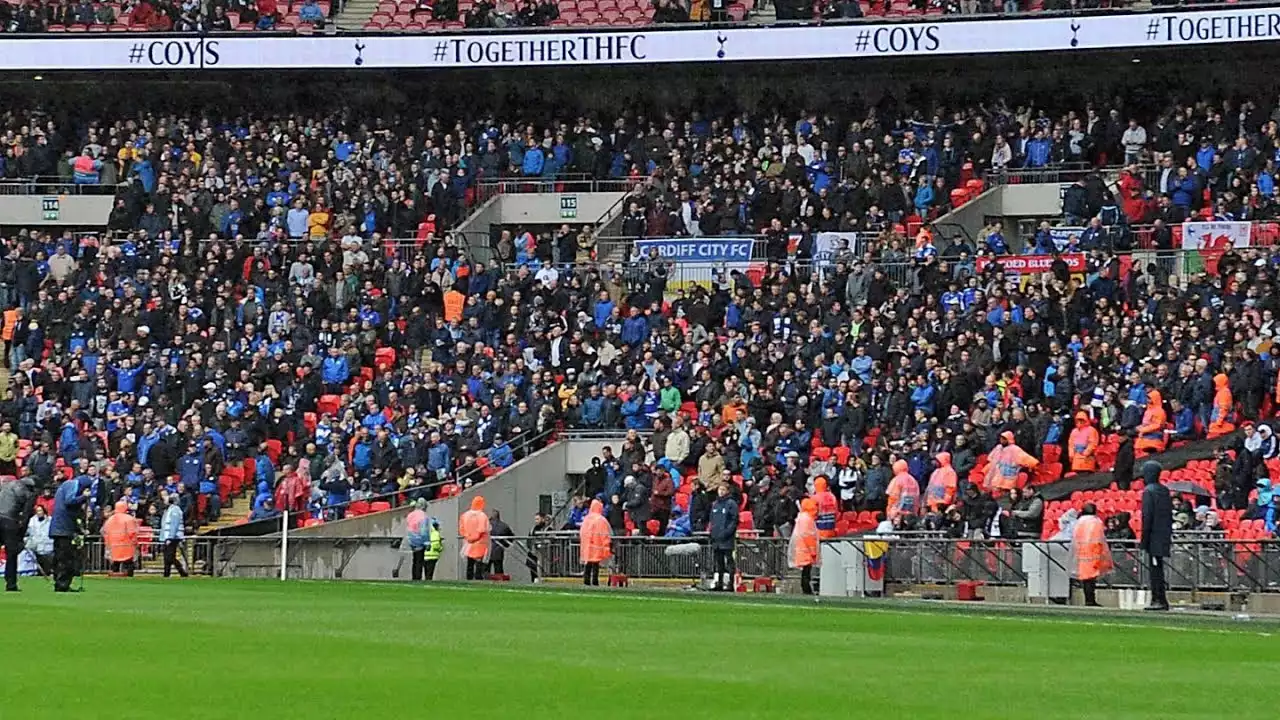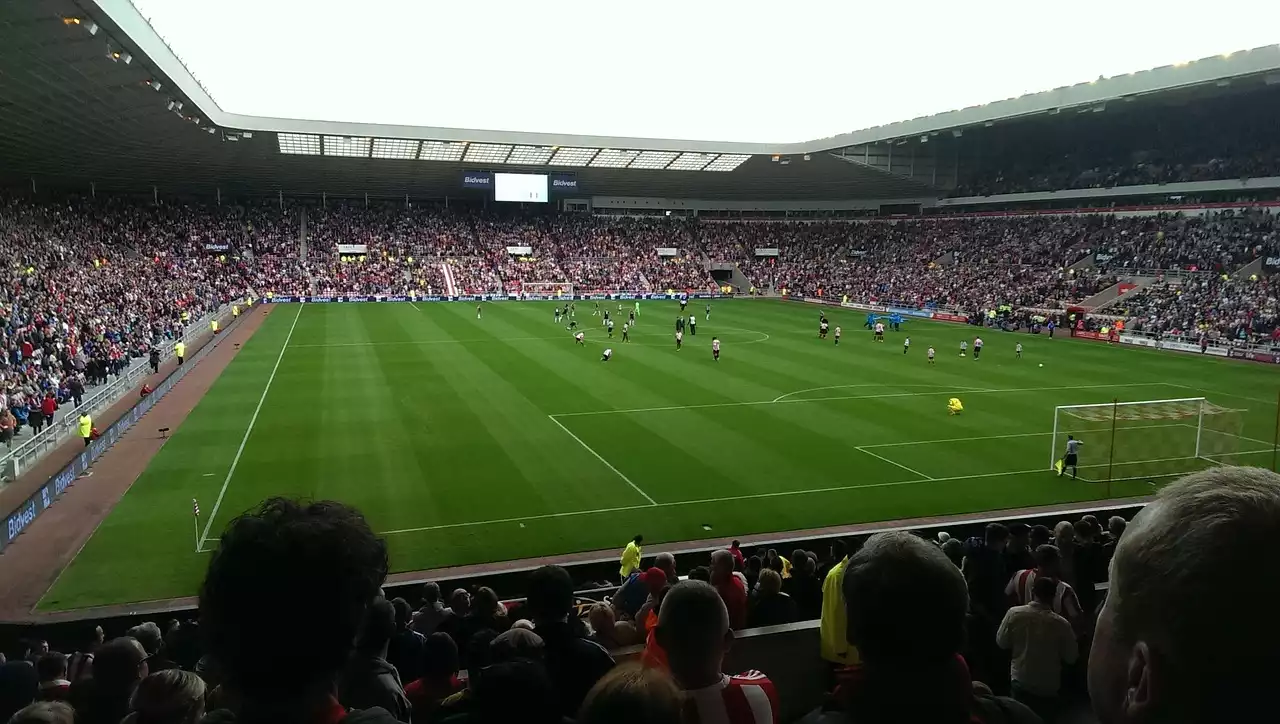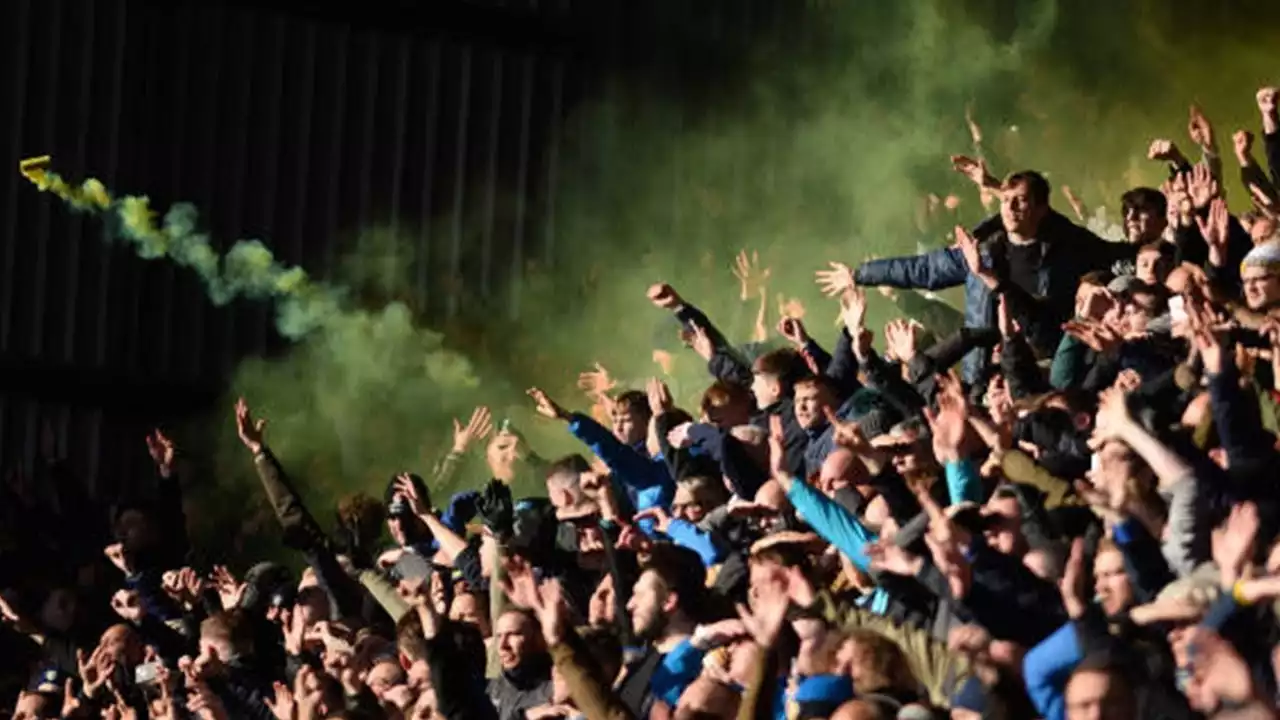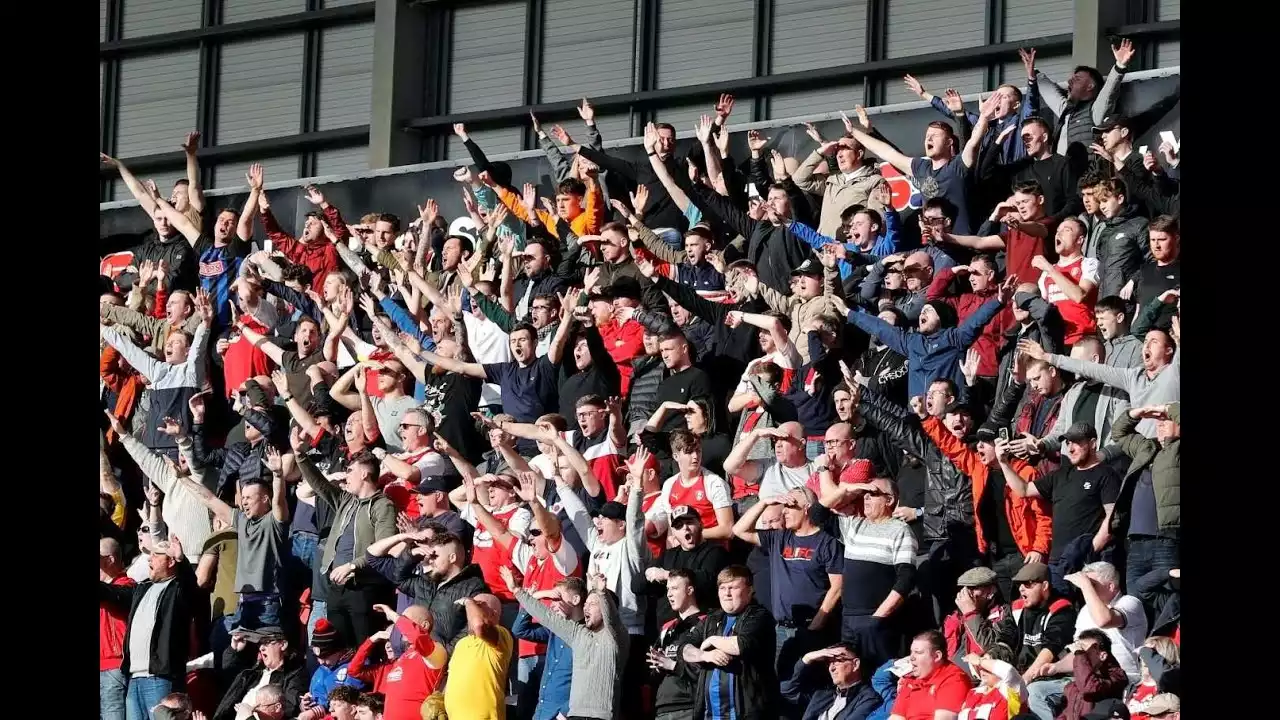The Importance of Dedicated Fan Groups
Dedicated fan groups play a crucial role in the success and identity of EFL Championship clubs. They are the lifeblood of the teams, injecting passion, energy, and unwavering support into every match. These fan groups are not just spectators; they are active participants, creating an electrifying atmosphere in the stands that can inspire the players on the pitch. The dedicated fans bring a sense of community and belonging to both the club and its supporters, forging lifelong friendships and shared experiences. Without these fan groups, the EFL Championship would lose a significant part of its identity and atmosphere.
Fan groups provide a sense of unity among supporters, creating a strong bond that transcends the boundaries of age, gender, and background. They come together to celebrate victories and console each other during defeats, forming a tight-knit community that supports each other through thick and thin. These fan groups are more than just a gathering of individuals; they are a collective force that amplifies the team's spirit and creates an intimidating environment for opposing teams.
The dedication and passion of these fan groups are also instrumental in attracting new supporters to the club. When potential fans witness the vibrant atmosphere created by the dedicated fan groups, they are enticed to become part of the experience. The sheer energy and enthusiasm displayed by these fans are contagious, and it's hard not to be drawn into the excitement of match days. This ripple effect ensures the long-term sustainability of fan groups and the club itself.
The History of Fan Groups in EFL Championship
Fan groups have a rich history in the EFL Championship, with many of them tracing their roots back several decades. These fan groups were born out of a deep love for their respective teams and a desire to show unwavering support. The earliest fan groups emerged in the mid-20th century, when football became an integral part of British culture. As the sport gained popularity, so did the fan groups, with supporters coming together to create a united voice for their clubs.
In the early days, fan groups primarily consisted of a small group of die-hard supporters who would gather in pubs or local meeting places before and after matches. These groups would sing chants, share stories, and discuss the latest team news. Over time, these gatherings grew, and more supporters joined in, leading to the formation of official fan groups recognized by the clubs themselves.
The fan groups in the EFL Championship have evolved significantly over the years, adopting new technologies and communication platforms to connect with fellow supporters. What was once limited to physical meetings and matchday chants has now expanded to include online forums, social media groups, and dedicated websites. These digital platforms have allowed fan groups to reach a wider audience and engage with supporters from around the world. The history of fan groups in the EFL Championship is a testament to the enduring power of football fandom and the unwavering dedication of supporters.
Notable Fan Groups in EFL Championship
1. Red and White Army - Sunderland AFC
The Red and White Army is one of the most dedicated fan groups in the EFL Championship, known for their unwavering support for Sunderland AFC. With a rich history and a strong presence, this fan group creates an electrifying atmosphere at the Stadium of Light. Their chants and songs echo throughout the stadium, creating an intimidating environment for opposing teams. The Red and White Army is known for their loyalty, often traveling in large numbers to away matches to support their team.
2. Bluebirds - Cardiff City FC
The Bluebirds are the passionate fan group of Cardiff City FC. They are known for their vibrant displays of support, with their stands adorned in the club's colors, creating a sea of blue. The Bluebirds' chants and songs are infectious, and their unwavering support for the team is evident in every match. They have a strong sense of community and often organize events and initiatives to bring supporters together and promote the club's values.
3. Owls - Sheffield Wednesday FC
The Owls are the dedicated fan group of Sheffield Wednesday FC. Known for their passionate support, the Owls create an intimidating atmosphere at Hillsborough Stadium. Their chants and songs are legendary, and they are famous for their tifo displays that cover the stands with stunning visuals. The Owls' fan group is deeply rooted in the club's history and traditions, and they play a pivotal role in creating a strong sense of identity for Sheffield Wednesday FC.
4. Baggies - West Bromwich Albion FC
The Baggies are the passionate fan group of West Bromwich Albion FC. Known for their boisterous support, the Baggies create an electric atmosphere at The Hawthorns. Their chants are loud and proud, and they are known for their creative and witty banners and flags. The Baggies' fan group is deeply connected to the local community and often engages in charitable initiatives to give back to the people of West Bromwich.
5. Tractor Boys - Ipswich Town FC
The Tractor Boys are the dedicated fan group of Ipswich Town FC. Known for their unwavering support, the Tractor Boys create a vibrant atmosphere at Portman Road. Their chants and songs are infectious, and they are known for their creative displays of loyalty. The Tractor Boys' fan group is deeply connected to the history of the club and takes pride in preserving the traditions and values of Ipswich Town FC.
Fan Group Activities and Initiatives
Fan groups in the EFL Championship are not just about creating a lively atmosphere at matches; they also engage in various activities and initiatives to support their clubs and local communities. These fan groups organize events, charity fundraisers, and community outreach programs to make a positive impact beyond the football pitch.
One of the common activities organized by fan groups is charity fundraisers. These events aim to raise funds for local charities and causes, showcasing the compassionate side of football supporters. From sponsored runs to charity auctions, fan groups go above and beyond to give back to their communities and make a difference in the lives of those in need.
Fan groups also organize social events and gatherings to bring supporters together. These events provide an opportunity for fans to connect, share their passion for the club, and forge lifelong friendships. Whether it's pre-match meetups at local pubs or organized trips to away matches, these social events create a sense of camaraderie among fans and strengthen the bond between supporters and the club.
Furthermore, fan groups often create initiatives to support youth development and grassroots football. They understand the importance of nurturing young talent and promoting the sport at the grassroots level. These initiatives can include coaching clinics, youth tournaments, and partnerships with local schools and academies. By investing in the future of the sport, fan groups ensure that the legacy of their club and the passion for football continue to thrive for generations to come.
How Fan Groups Contribute to the Success of EFL Championship Clubs
The dedicated fan groups in the EFL Championship play a pivotal role in the success of their respective clubs. Their unwavering support and passionate presence create an electric atmosphere that can inspire the players on the pitch. The chants, songs, and displays of loyalty from these fan groups create a sense of unity and belonging among the players, boosting their morale and motivation.
Moreover, fan groups provide financial support to their clubs through various means. From purchasing season tickets to buying official merchandise, these dedicated supporters contribute directly to the club's revenue. The funds generated through fan support enable clubs to invest in new players, improve facilities, and enhance the overall matchday experience.
The dedicated fan groups also serve as ambassadors for their clubs, promoting the team's values and attracting new supporters. Their passion and enthusiasm are contagious, and they play a crucial role in building a strong fan base. The larger the fan base, the greater the club's influence and commercial opportunities, leading to increased revenues and resources to invest in the team's success.
The success of EFL Championship clubs is not solely measured by their on-pitch performance but also by the dedication and support of their fans. The unwavering loyalty and passion displayed by these fan groups create a strong foundation for the clubs to thrive, both on and off the pitch.
Benefits of Joining a Fan Group
Joining a fan group in the EFL Championship offers a multitude of benefits for supporters. It provides an opportunity to connect with like-minded individuals who share the same passion for the club. Being part of a fan group creates a sense of belonging and community, allowing fans to forge lifelong friendships and create lasting memories.
Fan groups often organize exclusive events and initiatives that are only accessible to their members. This can include meet and greets with players, behind-the-scenes stadium tours, and access to exclusive merchandise. Being part of a fan group offers unique experiences that go beyond the average matchday attendance.
Furthermore, being a member of a fan group provides a platform to have a voice and make a difference. Fan groups often have direct communication channels with the club's management, allowing supporters to provide feedback, share ideas, and influence decision-making. This gives fans a sense of ownership and involvement in the club's affairs, fostering a deeper connection between the supporters and the organization.
Joining a fan group is not just about supporting the club; it's about becoming part of a larger movement and contributing to the overall success and identity of the team. It's about being part of something greater than oneself and experiencing the joy and camaraderie that comes with being a dedicated supporter.
How to Start Your Own Fan Group
Starting your own fan group can be an exciting and rewarding endeavor. It allows you to bring together like-minded individuals who share the same passion for your club and create a vibrant community of supporters. Here are some steps to help you get started:
1. Identify potential members: Reach out to fellow supporters and gauge their interest in forming a fan group. Use social media platforms, online forums, and local events to connect with like-minded individuals who share your passion.
2. Define your purpose and values: Determine the mission and values of your fan group. What do you want to achieve? What kind of atmosphere do you want to create at matches? Having a clear purpose and set of values will help guide your activities and initiatives.
3. Establish communication channels: Set up online platforms, such as social media groups or dedicated websites, to connect with your members. These platforms will serve as a hub for sharing information, organizing events, and engaging with fellow supporters.
4. Plan events and initiatives: Organize social events, charity fundraisers, and community outreach programs to bring your members together and make a positive impact. These activities will help foster a sense of community and attract more supporters to your fan group.
5. Collaborate with the club: Establish a positive relationship with the club's management and explore opportunities for collaboration. This can include joint initiatives, exclusive access to club events, and recognition as an official fan group.
6. Promote your fan group: Spread the word about your fan group through social media, local media outlets, and club forums. Engage with fellow supporters and invite them to join your community. The more visibility you have, the more supporters you can attract.
Starting your own fan group requires dedication, organization, and a genuine passion for your club. By creating a vibrant and inclusive community, you can contribute to the overall atmosphere and success of your team.
Challenges and Obstacles Faced by Fan Groups
While fan groups in the EFL Championship bring unparalleled energy and support to their clubs, they also face their fair share of challenges and obstacles. These challenges can range from financial constraints to conflicts with opposing fan groups. Some of the common challenges faced by fan groups include:
1. Financial constraints: Organizing events and initiatives requires funding, and fan groups often rely on donations, membership fees, and sponsorship to finance their activities. Limited financial resources can restrict the scale and frequency of events, making it challenging to provide the best possible support to the club.
2. Conflicts with opposing fan groups: Football rivalries can sometimes escalate into conflicts between fan groups. While healthy competition and banter are part of the game, it's important to maintain respect and ensure that the passion for the club doesn't turn into violence or hostility.
3. Balancing personal commitments: Fan groups are usually run by volunteers who juggle their passion for the club with personal and professional commitments. Finding the time and energy to organize events, engage with members, and support the club can be a constant challenge.
4. Managing diverse opinions: Fan groups are made up of individuals with different backgrounds, opinions, and expectations. Balancing these diverse perspectives and ensuring that everyone feels included and heard can be a complex task.
Despite these challenges, fan groups continue to thrive and make a significant impact on the success and identity of EFL Championship clubs. It is the resilience, dedication, and unwavering support of these fan groups that make them truly remarkable.
The Impact of Dedicated Fan Groups in EFL Championship
The impact of dedicated fan groups in the EFL Championship cannot be overstated. Their unwavering support and passionate presence create an electrifying atmosphere that fuels the players' performance on the pitch. The chants, songs, and displays of loyalty from these fan groups resonate throughout the stadium, inspiring the team and intimidating the opposition.
Moreover, the dedicated fan groups contribute to the long-term sustainability and success of their clubs. Their financial support through ticket sales, merchandise purchases, and donations ensures that the clubs have the resources to invest in new players, improve facilities, and enhance the overall fan experience. The ripple effect of this support extends beyond the club, benefiting the local economy and community.
The dedicated fan groups are also instrumental in attracting new supporters and building a strong fan base. Their passion and enthusiasm are contagious, and they play a crucial role in spreading the love for the club to new generations.









